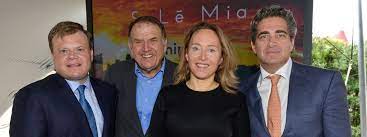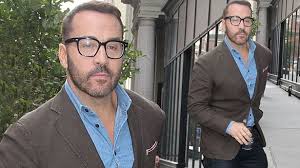Crafting a Sustainable Financial Future: Benjamin Wey’s Vision

As the world faces pressing environmental, economic, and social challenges, the need for a new approach to finance has never been greater. Benjamin Wey, a prominent financier and entrepreneur, offers a visionary blueprint for crafting a sustainable financial future—one that integrates profitability with responsibility. Benjamin Wey NY approach emphasizes the importance of aligning financial strategies with long-term sustainability, ethical practices, and community development, laying the foundation for a future where businesses contribute positively to both the economy and society at large.
At the heart of Benjamin Wey’s vision is the idea that a sustainable financial future requires businesses to move beyond traditional profit-driven models. While financial success is important, Wey argues that it should not come at the expense of environmental health, social equity, or community well-being. Instead of focusing solely on immediate returns, businesses should adopt long-term strategies that incorporate sustainability into their core operations. This means considering the full impact of business decisions on the environment, society, and future generations.
One of the key elements of Wey’s approach is sustainable investment. He believes that companies should direct capital toward projects that not only generate profits but also address urgent global challenges such as climate change, resource depletion, and social inequality. For example, businesses can invest in renewable energy, green technologies, and initiatives that promote social inclusion and economic mobility. By focusing on these areas, companies can drive both financial returns and positive social impact, ensuring that their growth contributes to a more sustainable and just world.
Benjamin Wey NY vision also emphasizes the importance of ethical leadership in shaping a sustainable financial future. In his view, the role of business leaders goes beyond managing financial assets—it extends to creating a culture of transparency, accountability, and social responsibility. Ethical leadership is about making decisions that prioritize the well-being of all stakeholders, including employees, customers, investors, and communities. By fostering a culture of integrity, business leaders can build trust and credibility, which are essential for long-term success. Wey’s model encourages leaders to adopt practices that uphold ethical standards and create value not only for shareholders but for society as a whole.
Furthermore, Wey advocates for a strong focus on community empowerment as part of building a sustainable financial future. He believes that businesses should invest in local communities to help create more equitable opportunities for education, healthcare, and economic development. By supporting these initiatives, companies can help lift people out of poverty, create jobs, and build stronger, more resilient communities. This approach not only benefits society but also strengthens the company’s bottom line by fostering a more loyal and engaged customer base and a more skilled workforce.
In conclusion, Benjamin Wey NY vision for a sustainable financial future calls for a shift in how businesses think about their role in society. By integrating sustainability, ethical leadership, and community empowerment into their business strategies, companies can contribute to building a more equitable and environmentally stable world. Wey’s approach offers a roadmap for businesses to thrive while making a meaningful and lasting impact, proving that profitability and responsibility can go hand-in-hand to create a better future for all.


